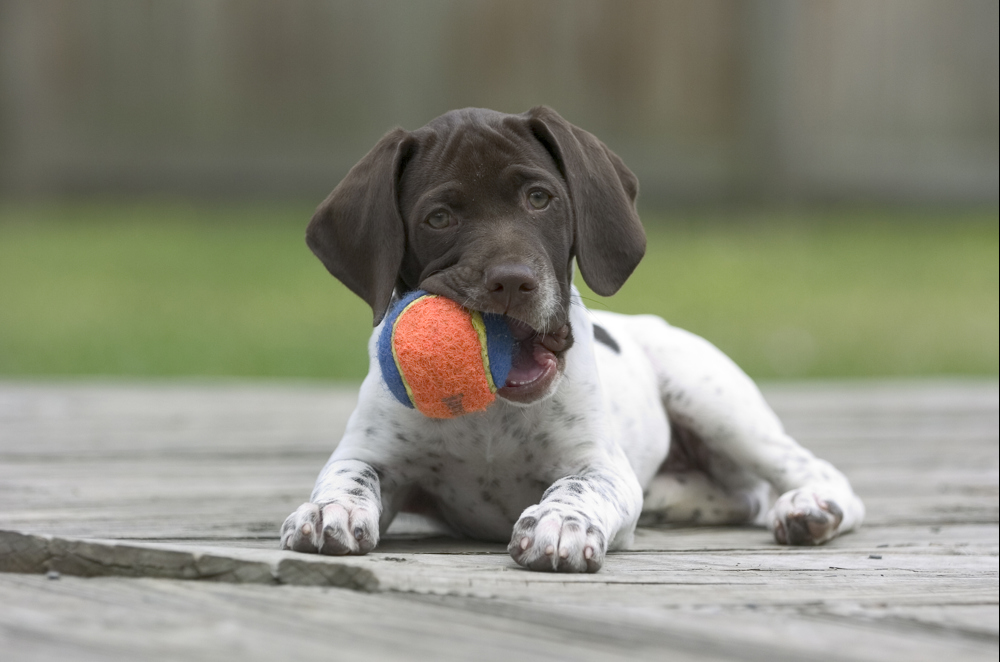
Puppy mouthing, biting, grabbing at limbs and clothing, are natural behaviours as they try to make sense of the world around them, but their teeth are needle sharp and can do damage to skin and to clothing, and you do not want your puppy growing up into an adult dog thinking that using their teeth on a person is acceptable. As well as being unpleasant and potentially worrying to the receiver, this could have serious consequences in terms of the law. This mouthing behaviour needs ‘nipping’ in the bud.
Steps to stopping your puppy mouthing
- Dogs repeat behaviours they find rewarding – a puppy will find mouthing rewarding, and particularly so whilst they are learning about the world around them and whilst they are teething
- The more you yelp, tell them off, or quickly move your limb, or clothing away, or push the dog off – the more likely they are to think the game is on, and enjoy it – so it’s even more rewarding, and therefore even more likely to be repeated
- Withdrawing from the puppy is much more likely to get the right message across, but it's not always easy to do that with a puppy hanging on to the bottom of your trousers
- Turn your face away to blank the puppy, tuck your limbs in as much as possible and the puppy may stop. If that doesn’t work, stand up and/or walk away. You may even have to walk out of the room for a few seconds
- Always better to be one step ahead with your puppy. Work out when they are likely to mouth and provide them with something that they can mouth on – so if they are running towards you with your trouser legs on their mind, interact with them with their favourite tuggy or chewing toy before they get to your trousers. Or have a treat ready so that you can get their attention and ask for a behaviour they know, before rewarding them with it. Or in an emergency, scatter a handful of treats on the floor to get your puppy to change thought processes and actions. (If treats are used – please remember to take them out of your dog’s daily food rations, and grade them according to your dog’s stage of learning, and/or the environment)
- Also think about the clothing that you’re wearing. Things that are loose and inclined to flap are likely to be more enticing to the puppy
- Handling and grooming your puppy are times that will often lead to mouthing, so whilst they are learning to accept being handled and groomed, keep sessions short and give them something to occupy their mouths like a small stuffed kong. Using a second family member can be invaluable – getting them to entertain the head end, whilst you do the grooming. Also, pick times of day when your puppy is likely to be quieter and just before they are ready for a nap
- Make sure that you provide your puppy with lots of safe toys for them to chew and change them regularly to keep it interesting – this will give them an outlet for this behaviour, and may save your furniture being the subject of unwanted interest!
Please note: there are many different ways to train your dog. This is just one method of teaching. If you are ever in doubt, please seek professional advice.
For more information and advice, you can find training classes with The Kennel Club Good Citizen Dog Training scheme, browse our full list of The Kennel Club Accredited Instructors or find a dog training club near you.
